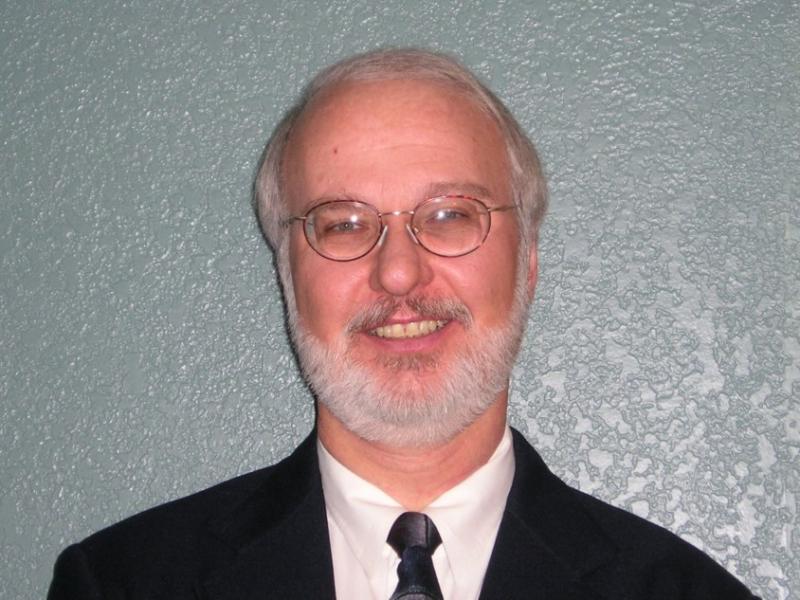Unprecedented levels of support and resources are becoming available to primary care practices in Colorado that want to improve, change and transform into examples of excellence in advanced patient-centered care. Overseeing many of these efforts is Dr. Perry Dickinson, Professor in the University of Colorado Department of Family Medicine, and Director of the Department’s Practice Innovation Program and the Colorado Health Extension System. Dr. Dickinson was a pioneer in early research around the implementation of the Chronic Care Model and the Patient-Centered Medical Home (PCMH) care model. During the last decade, he has led the Colorado Residency PCMH project, and is more recently directing the practice transformation portions of the Colorado State Innovation Model (SIM), Transforming Clinical Practice Initiative (TCPi), and the EvidenceNOW Southwest (ENSW) project. HealthTeamWorks® caught up with Dr. Dickinson to reflect on Colorado’s successes to date in practice transformation, and also to contemplate what challenges lie ahead as we continue on this journey of improvement.
HTW: Can you provide us with some background on the evolution of practice transformation in the state of Colorado?
Dr. Dickinson: One of our first large-scale efforts to test the effectiveness of quality improvement methods was the Improving Performance in Practice (IPIP) program led by HealthTeamWorks®. It was originally funded by the Robert Wood Johnson Foundation in 2006, and it focused on improving care and outcomes of patients with diabetes and asthma. I was able to work closely with HealthTeamWorks® in the initial training of the quality improvement coaches involved in the IPIP project and I also helped evaluate the program. At the same time, I had an NIH-funded project looking at methods to help practices in implementing the Chronic Care Model to improve diabetes care, so we were able to compare two different approaches to practice facilitation or coaching in supporting practices in this work.
After the Affordable Care Act (ACA) launched six years ago, we started to see more funding coming from the federal level for primary care practice transformation. The Centers for Medicare and Medicaid Services (CMS) started funding demonstration projects of various models of advanced primary care, and the Agency for Healthcare Research and Quality (AHRQ) funded projects related to practice facilitation, the implementation of clinical guidelines, quality improvement, and the formation of primary care extension programs. Many of the practice transformation programs we see in Colorado today come from those agencies, including the Comprehensive Primary Care initiative (CPC Classic and CPC+), Colorado SIM, TCPi and ENSW. These last few years we’ve experienced a tremendous amount of growth in our programs, with SIM, TCPi and ENSW alone bringing millions of dollars of support into Colorado.
HTW: What are some of the greatest successes for Colorado so far in the area of improving clinical practice?
Dr. Dickinson: One area where I think Colorado has really shined is the improvement of our primary care residency education. Residency practices are tough places to create change because they are large, chaotic programs with largely part-time faculty and resident clinicians and with many regulatory limitations around their educational mission. We had held off on including them in IPIP because of the complexity and differences. HealthTeamWorks® and our University team partnered with the Colorado Association of Family Medicine Residencies for a grant funded by The Colorado Health Foundation in 2008 to implement key PCMH practices within the residency practices and curricula. Our redesign efforts have had a major impact, and the latest program results (click here to view our infographic) show significant gains in PCMH components in both learning and practice. As a result, we are substantially ahead of the national curve in preparing primary care physicians to successfully take on new payment models.
We have also been able to bring together a lot of organizations through our Colorado Health Extension System to work side-by-side across a common framework and model to create sustainable change…that’s been a major win. The historical work that the University of Colorado and HealthTeamWorks® have done in practice transformation research and implementation has brought a lot of practice transformation support funding into the state to help practices work on new models of practice – we’ve gotten Colorado a lot of recognition as being really advanced in these areas.
HTW: What challenges are still ahead of us?
Dr. Dickinson: One of our biggest ongoing challenges is trying to coordinate and align our efforts across all of these big transformation projects with an eye toward developing models that we can use across the state. We’re also trying to coordinate our approaches with payers and create some consistency in that arena. This is difficult because there are so many payers in Colorado and whichever model we develop has to conform to what the payers are willing to support. The work that HealthTeamWorks® did early on fostering collaboration among payers was centrally important in this area, and we continue to work collaboratively to move this forward. We’re not where we need to be just yet, but we’re getting there.
Also presenting serious challenges is that fact that there are still a lot of practices that are not where they need to be. Many are still taking a “wait and see” approach, but there’s no doubt that they will need to change the way they do business. Some had bad experiences with managed care in the 1980s and 1990s, and the reality is that practices are very, very busy. It takes time to make these changes, and there’s a cost to the practice. It doesn’t help that reimbursement models keep changing too, and practices have questions about which program is right for them. But we’re working hard to address these obstacles, and we’re hoping practices will take advantages of the resources available now since we’re never sure how long this support will last. It’s been a pleasure working with HealthTeamWorks® over the years to drive this change, and I’m looking forward to seeing where our partnership takes us in the future.









